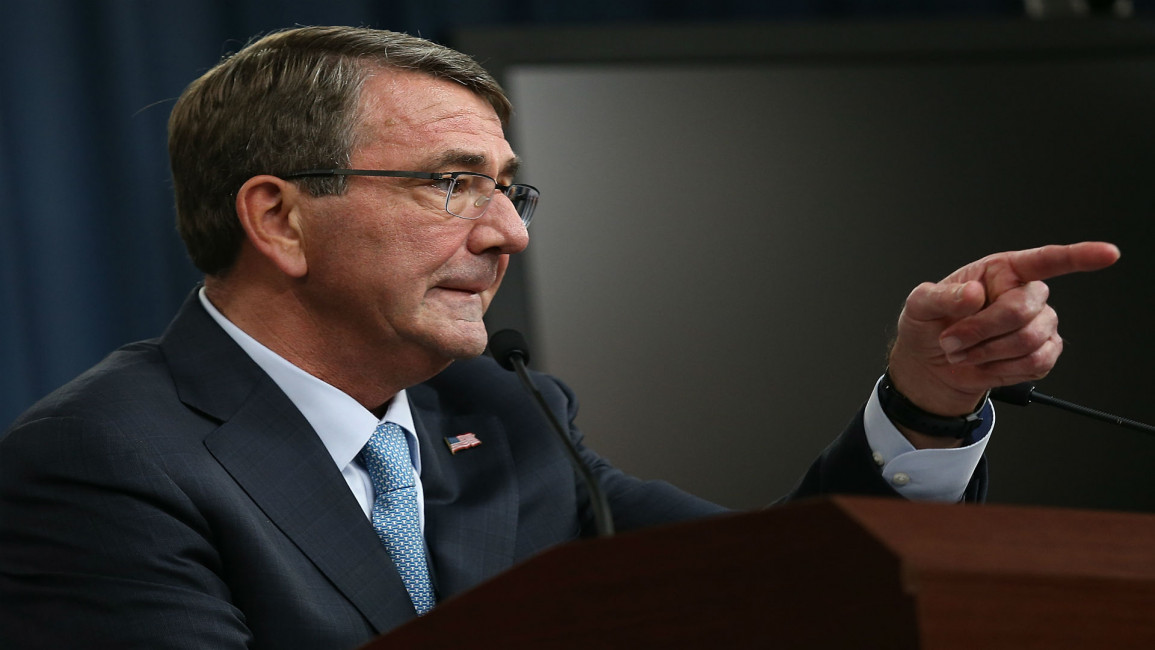US considering special forces in Syria, helicopters in Iraq
US Defence Secretary Ash Carter said on Tuesday that the United States would conduct unilateral ground raids if needed to target Islamic State group (IS) militants in Iraq and Syria.
"We won't hold back from supporting capable partners in opportunistic attacks against ISIL, or conducting such missions directly, whether by strikes from the air or direct action on the ground," Carter said in a testimony before the Senate Armed Services Committee, using an acronym for the Islamic State group.
Carter however did not specify the circumstances under which the US might conduct more ground action, but said, "Once we locate them, no target is beyond our reach."
The U.S. has conducted special operations raids in Syria and participated in a ground operation to rescue hostages last week in northern Iraq that resulted in the first US combat death in Iraq since 2011.
While the Obama administration faces severe criticism of its anti-IS strategy in Syria and Iraq, the defence secretary's testimony outlined a changing US approach to the fight against IS.
Boots on the ready
The changes point toward the prospect of deeper US military involvement, although President Barack Obama has said he would not authorise a major commitment of ground combat forces.
According to US defence officials who spoke on condition of anonymity, other options being considered is providing close-air support for Iraqi ground forces with Apache helicopters or other aircraft, and embedding US military advisers with smaller Iraqi units, thus placing the Americans closer to the front lines.
The US now has about 3,300 troops in Iraq to train and advise Iraqi forces and to protect US facilities, while there are no US troops in Syria.
The changes Carter cited focus largely on targeting Raqqa, the militants' declared capital in Syria, and recapturing Ramadi, the capital of Anbar province in western Iraq, which IS fighters captured in May and have successfully defended so far.
In Syria, Carter said the US will support moderate Syrian forces fighting IS militants, who have made territorial gains near Raqqa.
He said the US hopes to better equip anti-IS forces, further bolster Jordan and intensify the American air campaign with additional US and coalition aircraft to target IS with heavier airstrikes.
"In the new train-and-equip effort that we described today, we will look to identify and then support capable and motivated forces on Syrian territory that are willing to take on IS," Carter said.
"We have identified some of them already. And the new approach is to enable them, train them and equip them, rather than trying to create such forces anew, which was the previous approach."
A Defence Department program to train and equip moderate rebels in Syria to combat the Islamic State was a failure, and CIA-backed rebels fighting Assad are now under attack by Russian bombers.
In Iraq, Carter said the US is willing to provide more firepower and other support if the Iraqi government can create a motivated Iraqi force that includes Sunnis.
"We've given the Iraqi government two battalions worth of equipment for mobilising Sunni tribal forces. ... If local Sunni forces aren't sufficiently equipped, regularly paid and empowered as co-equal members of the Iraqi security forces, ISIL's defeats in Anbar will only be temporary," Carter said.



